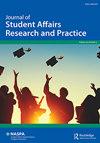The Illusion of Identity: At-Home Ancestry Testing, Forensics, and the Accuracy Problem
IF 0.8
Q3 EDUCATION & EDUCATIONAL RESEARCH
Journal of Student Affairs Research and Practice
Pub Date : 2023-05-31
DOI:10.47611/jsrhs.v12i2.4421
引用次数: 0
Abstract
Race, as a social construct, plays a significantly large role in the scientific field of genetics. This review analyzes several studies to reach a more comprehensive understanding of race’s historical influence in genetics, the modern implications of this relationship, and the validity of race as a scientific category in genetics. While the scientific validity of race has largely been disproved, it continues to be used by scientists and geneticists, specifically in genetic disease research. Aside from the obstacles stemming from race’s lack of legitimacy in science, its social implications are also a liability for scientific advancements because of how race has historically marginalized people groups. Moreover, the monetization of recent discoveries in genetics, including at-home ancestry test kits and molecular photofitting in forensics, are a cause for concern due to their lack of scientific accuracy. The process of racial categorization of test subjects is not as accurate as companies advertise, and this lack of transparency can lead to false conclusions about personal identity based on misinformation of at-home ancestry test results which rely upon a limited data set. In addition, this possibility of error in the DNA testing process can lead to the criminalization of innocent suspects. Therefore, awareness about both the primary motives of these companies, as well as the social implications of interpreting genetic test results, is critical to understanding the broader effects of race in genetics in society.身份的幻觉:家庭血统测试,法医学和准确性问题
种族作为一种社会建构,在遗传学的科学领域中扮演着重要的角色。本文分析了几项研究,以更全面地了解种族在遗传学中的历史影响,这种关系的现代含义,以及种族作为遗传学科学类别的有效性。虽然种族的科学有效性在很大程度上被证明是错误的,但它继续被科学家和遗传学家使用,特别是在遗传病研究中。除了由于种族在科学中缺乏合法性而产生的障碍之外,它的社会影响也是科学进步的一个负担,因为种族在历史上是如何边缘化人群的。此外,最近在遗传学方面的发现,包括家庭血统检测试剂盒和法医中的分子光装,由于缺乏科学准确性,令人担忧。测试对象的种族分类过程并不像公司宣传的那样准确,而且缺乏透明度可能导致基于依赖有限数据集的家庭血统测试结果的错误信息而得出关于个人身份的错误结论。此外,DNA检测过程中出现错误的可能性可能导致无辜嫌疑人被定罪。因此,了解这些公司的主要动机,以及解释基因检测结果的社会影响,对于理解种族在遗传社会中的更广泛影响至关重要。
本文章由计算机程序翻译,如有差异,请以英文原文为准。
求助全文
约1分钟内获得全文
求助全文
来源期刊

Journal of Student Affairs Research and Practice
EDUCATION & EDUCATIONAL RESEARCH-
CiteScore
2.40
自引率
9.10%
发文量
50
期刊介绍:
The vision of the Journal of Student Affairs Research and Practice (JSARP) is to publish the most rigorous, relevant, and well-respected research and practice making a difference in student affairs practice. JSARP especially encourages manuscripts that are unconventional in nature and that engage in methodological and epistemological extensions that transcend the boundaries of traditional research inquiries.
 求助内容:
求助内容: 应助结果提醒方式:
应助结果提醒方式:


